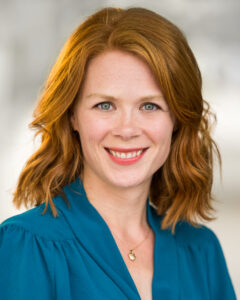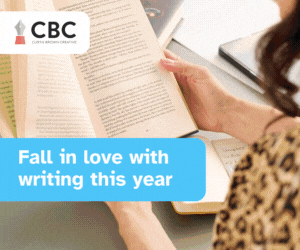Ask An Industry Expert: Eleanor Leese
16 September 2022
Today I’m delighted to welcome Eleanor Leese (a.k.a. Ellie Darkins), Freelance Editor with Cornerstones Literary Consultancy, who was named by author Laura R Leeson for contributing to her success in moving from our New Writers’ Scheme into publication and thus becoming a contender for the Joan Hessayon Award 2022.
 Hi Ellie and welcome to the hotseat. Could you begin by telling us how you became a freelance editor?
Hi Ellie and welcome to the hotseat. Could you begin by telling us how you became a freelance editor?
Hi, and thanks so much for having me! I started out working in-house in academic publishing after I finished my English degree. Four years later I made the move into fiction publishing, taking on freelance jobs in between internships at various publishing houses. I found that I loved the variety and flexibility of the freelance lifestyle—that was 2010 and I’ve been freelance ever since.
In 2014 I started working with Cornerstones Literary Consultancy, offering feedback and mentoring to their clients, as well as my other work directly with authors and with publishing clients. Cornerstones handpick editors for their clients based on their experience and areas of expertise, so I can always be sure with a Cornerstones client that we’ll be a great fit.
Am I correct in thinking that you have also become an author yourself? Could you tell us a bit about that—how you came to take the plunge, what genre you write in and what name you write under?
Yes! My pen name is Ellie Darkins and I’ve been writing romance for Mills & Boon’s True Love line since 2014 – my fifteenth book with them will be out in September. Back when I first went freelance, I was lucky enough to be an intern at Mills & Boon, and the scribbling in notebooks that I was doing on my commute took on a new urgency. It took a lot more practice and work on my craft before I was ready to query them as an author, and then even more work when they decided that my first book wasn’t quite right for them. But I got there eventually (thanks to the patience and editorial insight of Flo Nicoll, who was my first editor). When I’m working with authors, especially those at the very start of their writing journey, I always share that I know how hard it can be to get feedback on your work. But also that constructive criticism is so important in reaching your goals as a writer.
So you’re on both the giving and receiving side of my next question! What are the most important qualities an editor must bring to the task of editing another’s work? And are there any rules for what they shouldn’t do?
For me the number one rule is to remember that it’s the author’s book and they get the final say. My edits and feedback are only ever suggestions, and it’s entirely up to the author what they do with those suggestions. That being said, in an ideal author–editor relationship, both parties want to work as a team, with the shared goal of producing the best possible book and the best possible experience for the reader.
Being published traditionally by Mills & Boon, I have a fantastic editor there (Charlotte Ellis) who holds my hand and cracks the whip in equal measure. I still have a complete panic when I receive my editor letter, convince myself nothing can be done and have a little cry. Charlotte knows not to follow up with a phone call until I’ve slept on it and pulled myself together! I also have an amazing group of writer friends who are generous with brainstorming, bouncing around ideas and generally cheerleading when needed. Building a community is so important when you’re a writer, and is just one of the reasons I love the RNA so much.
Could you describe the process of going about the task of editing a manuscript. Are there certain tasks you consciously undertake in a certain order, or do you simply read it and, as it were, cover all aspects of your role at once?
For structural and development editing, I try to approach my first read as a general reader would (I never read the whole synopsis first!), and enjoy the parts that work well, making note of any areas that don’t quite click for some reason. For example, if there are passages I’m tempted to skim through, areas that confuse me, things that take me by surprise or characters who act in ways that don’t make sense. I leave notes to myself in the manuscript that will help me craft a report later. Once I’ve finished the first read, I go back to those comments, diagnose what isn’t working and start to come up with possible solutions. That all gets collated into a report, which notes general strengths as well as making suggestions for next steps. This usually comes in at around 8-20 pages of feedback depending on the length of the book and the issues I’ve identified.
In your experience what are the most common things an author needs help with? In other words, what are you most likely to be querying or advising on with those colourful comments in the margin?
For romance authors, the feedback is generally a variation of *dig deeper* with character emotions. It’s so important in romantic fiction that every character has strong goals, motivations and emotional conflict, and this is an area that’s so hard to get right on a first draft without another set of eyes.
I often see stories where the characters feel like they’ve been manoeuvred into position by the plot, and work with the author to shift the balance so that the plot is dictated by character choices instead. And what dictates those choices? Emotional goals and conflicts every time! I almost always refer authors to Goal, Motivation, Conflict by Debra Dixon as a starting point before tackling revisions because she goes in to this topic in so much depth. The Emotional Thesaurus and Emotional Wound Thesaurus are almost always on the reading list too.
My own experience of working with several different editors has been that they tended to pick up on different things and I know I learnt something different from each of them in regard to self-review of my manuscripts. So here’s my question. Do you think it’s preferable for an author to work with one main editor over a period, covering several books and developing that important working relationship—OR is it helpful for the author to gain different perspectives by working with different editors (and vice versa)?
I think both options have a lot to recommend them. I find that when I work with authors on more than one project, we develop a shorthand that makes the revisions process more enjoyable for us both. We can talk about how their story fits in with their wider goals as a writer, whether—for example—a sub plot could work better as a standalone short story, or be held back for a later volume in a series. When we work together over time, there’s also the opportunity to build the trust that’s needed when giving challenging feedback, and the vulnerability that’s needed to engage with it.
But you’re absolutely right that multiple viewpoints can be helpful too. I always recommend this, for example, if an author is writing a character with a marginalised identity that neither they I share. It’s so important to have diversity of views in publishing.
Overall, I’d say that the ideal balance is to have one person who you work with consistently, to develop trust and continuity, but also to look to beta readers and sensitivity readers to ensure that tunnel vision doesn’t creep into your work.
When I was with a publisher I had to work with two editors for each book. The first went through for content (twice, with my comments in between), then another editor did line edits, also twice. It all took some time, but I guess the point was that the final inspection allowed the line editor to focus on the appearance of the manuscript without being caught up in the story itself. In your experience is this distinction still maintained or is it all done in one go, so to speak—not least due to the general trend to minimise the time between submission and publication.
This varies so much across the industry. I work a lot with authors before they submit to agents or publishers, so their work will go across another editor’s desk once it goes in-house. Some publishers still do development, line and copy-edits separately (this happens for my Ellie Darkins books at Mills & Boon) whereas others will combine stages. It can also depend on the manuscript. A script that has gone through a detailed development edit and is looking in great shape might go straight to copy-editing, whereas others might need that line edit stage in between. Authors who are self-publishing will also be balancing budget constraints, making a combined line and copy-edit more likely. My only hard and fast rule is that I never proofread a book that I have edited. It’s too easy to miss things when you’re already familiar with the text.
For independent authors, how important do you consider it is for them to have a second pair of eyes on their manuscript rather than only self-edit?
I would say that it is absolutely vital. It’s easy to have blind spots about our own work (as an author I know that this is absolutely true for me too!) and to have a trusted third party point this out will help you get the most out of your story. If a freelance editor is beyond an author’s budget, beta readers and critique partners can be a really great source of feedback when you’re starting out. Just make sure you choose someone who is an experienced reader in the genre or niche that you are targeting, and prepare yourself for the vulnerability that comes with asking for feedback.
Can I ask about genre now? Do you have particular expertise that leads you to prefer editing particular genres—and where does romance sit with you? Correspondingly, is there any subject matter you are not keen on working with?
I work mostly on romance, commercial women’s fiction and historical fiction. Romance is the genre that I read most, and the genre that I write in. Basically anything with kissing in it is my bag and I prefer happy endings to weepies. I also love a historical – I’m studying for a masters degree in History at the moment, so the more historicals that come across my desk the better!
What do you yourself read for leisure (assuming you get any!) and can you tell us the last published book you read which you really enjoyed and why?
Romance, almost always! I love a historical too—I’m really enjoying regencies—so anything that combines the two is perfect. I’ve recently loved Alexis Hall’s A Lady for Duke. He’s probably my favourite author at the moment and keeps hitting it out of the park book after book. I’m in awe!
Thank you for talking with us, Eleanor, and very best wishes in your studies for the Masters.
For more about Eleanor’s work as both author and editor, see:
Insta: https://www.instagram.com/ellie_darkins/
Twitter: https://twitter.com/EllieDarkins
TikTok: https://www.tiktok.com/@ellie_darkins
Editorial website: www.eleanorleese.com
Author website: https://www.elliedarkins.com/
Eleanor is no stranger to awards, being nominated for the RONA Rose in 2020 and having worked with the following RNA shortlisted authors and winners:
Sue Moorcroft, Jeevani Charika/Rhoda Baxter, Jane Lovering, Christina Courtenay, Henriette Gyland
*
Eleanor was talking with Susan Leona Fisher (www.SLFisherAuthor.co.uk)


